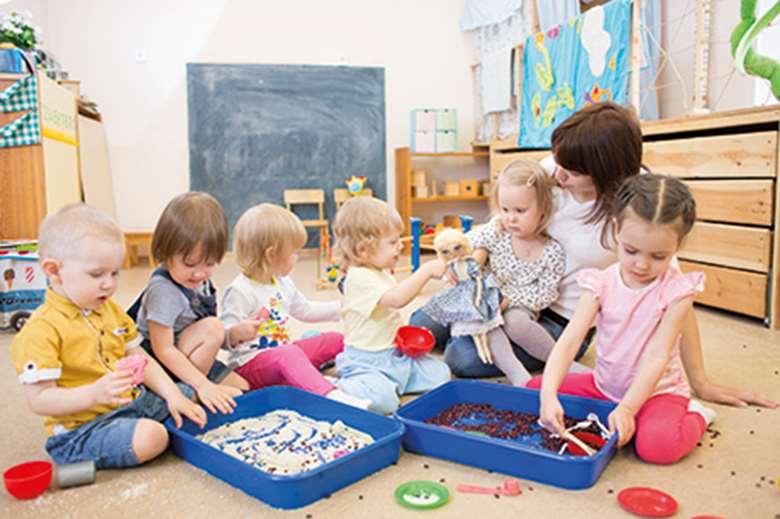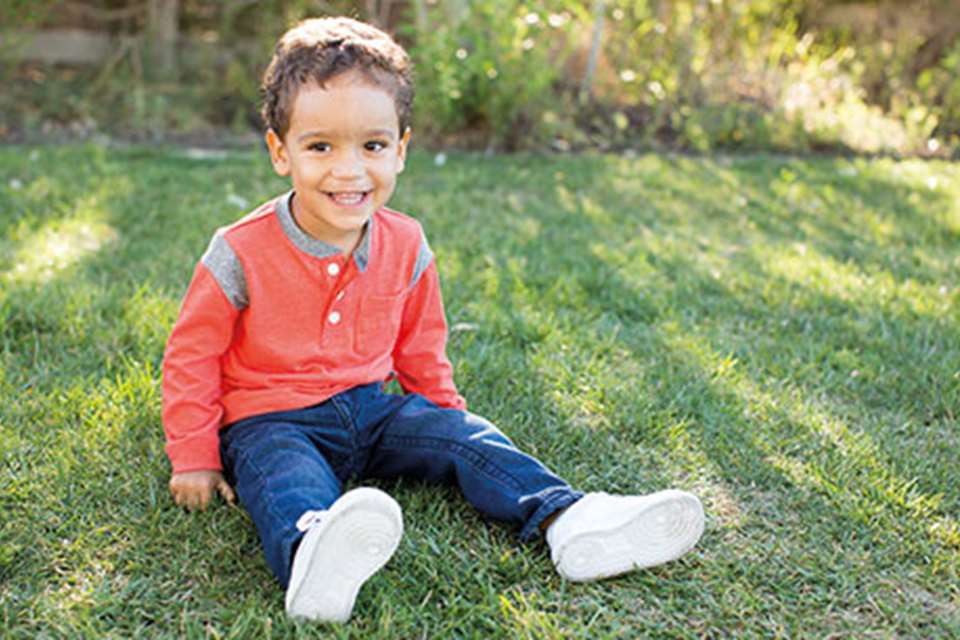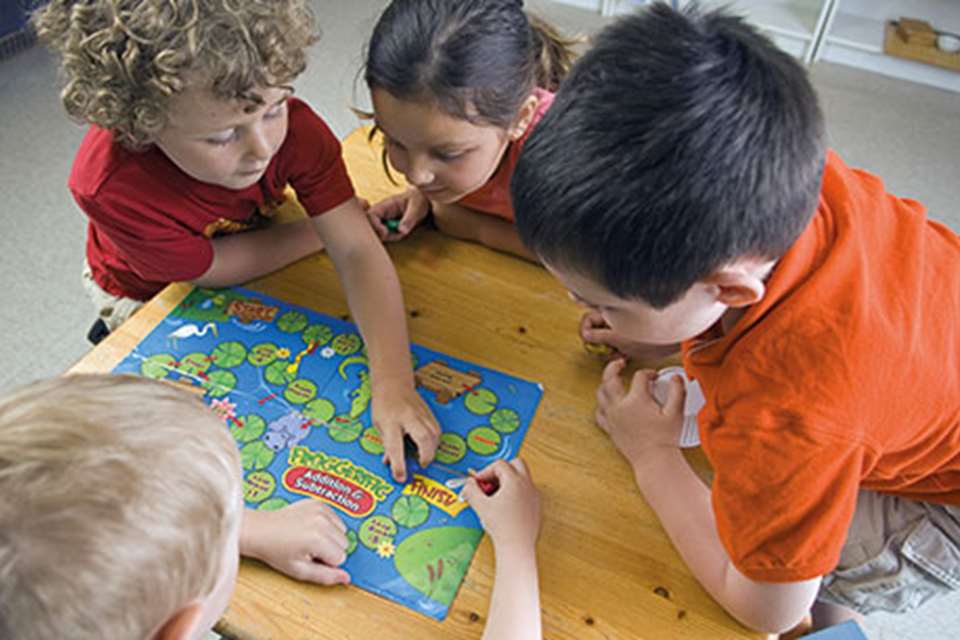Speech & Language: Part 12 - Just ask?
Penny Tassoni and Anne-Marie Tassoni
Monday, April 1, 2019
Anne-Marie Tassoni and Penny Tassoni explain the purpose of asking questions of children, and what they should entail

[asset_library_tag 2001,Download the PDF of this article]
QUESTION...
I work in a daycare setting attended by children from the age of three months to five years old. We have recently been given conflicting advice about how to use questions with young children.
On one hand, we have been told to use questions as a tool for teaching. However, we have also been told that adult questioning can prevent children from talking and engaging in conversation.
We would welcome your thoughts on how to use questions and with which children.
There are many reasons why adults use questions with children. In some ways, recognising why you are asking a child a question is a good starting point to analysing and improving your practice.
The main reasons adults ask questions of children are for:
Encouraging conversation
Questions are often used to initiate or develop a conversation – for example, ‘What are you doing?’
Assessment
There are times when using a question can help us find out about children’s knowledge, level of understanding or thinking. ‘What is a baby sheep called?’
Extending thinking
To extend children’s thinking, an adult might ask a question such as ‘What do you like about your new shoes?’ or ‘How could we make this stronger?’.
Gaining information
There are times when a question helps us to find out more from a child – for example, ‘Did go you with mummy?’, or ‘How did you get there?’.
To model questions and vocabulary
Asking and answering questions ourselves – for example, ‘Where’s the duck?… Oh, there’s the duck!’ – helps babies and toddlers to learn the meanings of ‘where’, ‘what’ and ‘who’ and can also help babies and toddlers to make links between words and objects or actions.
LEVELS OF QUESTIONS
When analysing the kinds of question that we ask children, it can be useful to use the Blank Levels of Questioning. This is also referred to as the Blank Language Model and is a model that is often used by speech and language therapists. You might find it useful as a way of matching the questions that you ask to the language level of the children in your nursery.
Level 1: Naming things
These are very simple concrete questions which allow children to say or point to objects in front of them or talk about things that they have just done. They include questions such as ‘What’s that?’ and ‘Can you point to the duck?’. We are likely to use this type of question with young children as well as babies and toddlers. Typically children between the ages of two and three should be able to respond to this type of question.
Level 2: Describing things and answering ‘who’, ‘what’ and ‘where’
At this level, children are still answering questions about things that they can see or have done recently. They include ‘who’, ‘what’, ‘where’ and ‘which’ questions – for example, ‘Who is in the photo?’ and ‘Which one will we eat?’. This level of question encourages children to talk rather than to point. Most three- and four-year-olds should be able to answer Level 2 questions.
Level 3: Narrative
The next level of questions encourages children to talk about stories and events. It includes questions that will provide children with opportunities to predict what might happen next, how someone feels and to retell a story – for example, ‘What did the farmer say to the dog?’ and ‘How did the dog feel?’. These questions require children to use some abstract thinking. Typically, children between the ages of four and five years old should be able to respond to this level of questioning.
Level 4: Solving problems and answering ‘why’ questions
Questions at this level are abstract. They require explanations, solutions and problem-solving. Children will need knowledge and experience to answer such questions as ‘What would happen if no one tidied up today?’ or ‘How can you tell when it is lunchtime?’. This level of questions can normally be answered by most five- and six-year-olds.
HOW AND WHEN TO USE QUESTIONS
As you can see, there are many different types and levels of question. The trick as a practitioner is to know which level of questions to ask and when. When you were told to use questions as a tool for teaching, this was probably to develop the thinking of older children or those with strong language. This would probably involve questions at Levels 3 and 4.
Tips for asking questions
Here are some tips that might be helpful when thinking about using questions with children:
- Think about whether you need to ask a question – will a comment achieve the same outcome?
- Check that you have the child’s interest and attention before asking a question.
- Allow sufficient time for a child to respond and don’t keep firing questions one after another.
- Tailor questions according to the language level of a child. Children who are new to English or have delayed language may need questions at Level 1 even though they might be older.
- Observe children’s body language when asking questions. Look out for signs of anxiety, such as the child clasping a sleeve with one hand.
When questions may not be appropriate
Using questions with some groups of children may reduce – rather than promote – interactions and may also cause some anxiety. These are children who:
- have a stammer
- are reluctant talkers, or are shy
- have a language delay
- are new to English
- are toddlers.
With these groups of children, it is better to use comments such as ‘I wonder where the dog is now’. The advantage of commenting is that it removes any pressure to answer the question. It also helps to develop language because children hear a sentence being modelled.
In addition, there are times when it is best not to interrupt children with a question. This is particularly the case when they are fully engaged in an activity requiring concentration, so a question may interrupt their play and thinking.
WHEN TO BE CONCERNED
If you are simplifying questions routinely, the chances are that the child has difficulties understanding or using language. Not being able to answer questions is an indicator of this.
Unless the child is new to English or has already been identified as having a language difficulty, you should contact your local speech and language team.
SUPPORT GROUPS
To find out more about Blank Levels of Questioning, see www.cnwl.nhs.uk/wp-content/uploads/8-a-Abstract-language-and-verbal-reasoning-BLANKs-level.pdf
NURSERY WORLD NORTH 2019
Join us at Nursery World North in Manchester on 11 and 12 May to hear leading speakers from across the sector in our masterclass and seminar programme.
Following the success of our SEND conference, key experts will return to present Friday’s masterclass, ‘SEND in the early years: a child’s route to support’.
Saturday’s masterclass – ‘Helping children achieve: challenge and progression in children’s learning’ – will look at how to help children fulfil their potential by improving outcomes for all and so closing the attainment gap.
The seminar programme includes a wide variety of themes, including school-readiness, block play, early music development and how to become an ACE-aware setting, looking at the impact of adverse childhood experiences (ACE) on early child development.
Penny Tassoni will be looking at the importance of cross-curricular learning in role play and how daily activities can support the Prime areas in under-threes.














